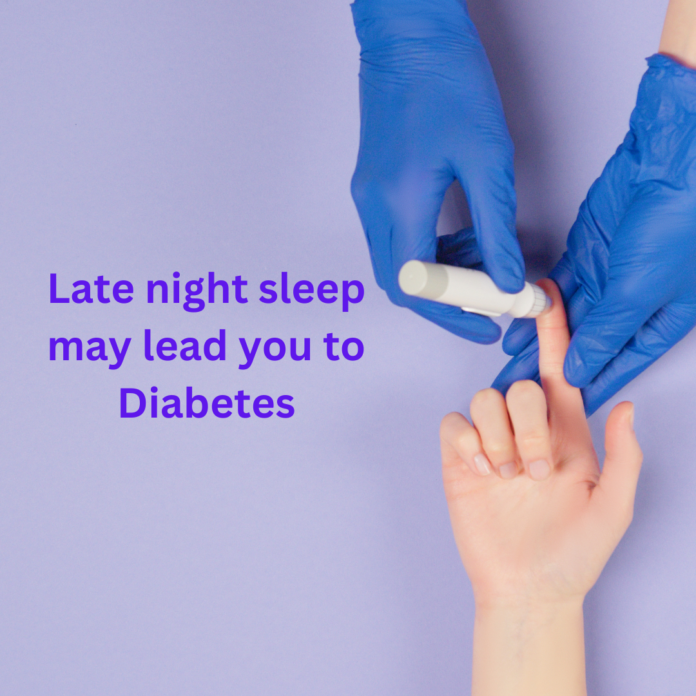In our increasingly fast-paced world, many people find themselves burning the midnight oil, juggling multiple responsibilities, and sacrificing sleep for productivity. However, a growing body of research suggests that this lifestyle might come with serious health consequences. Recent studies reveal that late night sleepers face a 50% higher risk of developing type 2 diabetes compared to those who adhere to a more traditional sleep schedule. Understanding the link between sleep patterns and diabetes risk is crucial for making informed decisions about our health.
The Science Behind the Sleep-Diabetes Link
Type 2 diabetes is a chronic condition that affects the way your body metabolizes sugar (glucose). It is characterized by insulin resistance, where the body’s cells do not respond properly to insulin, leading to elevated blood sugar levels. A plethora of studies have highlighted the role of sleep in regulating various metabolic processes, and new research indicates that late-night sleep patterns might disrupt these processes.
A study conducted by the American Diabetes Association found that individuals who regularly sleep late experience altered glucose metabolism. This is partly because late sleepers often have irregular eating patterns, which can affect insulin sensitivity. The disruption of the body’s natural circadian rhythm—our internal clock that regulates sleep-wake cycles—also plays a significant role. Circadian misalignment can impair the body’s ability to manage glucose and increase inflammation, both of which are precursors to diabetes.
How Sleep Patterns Affect Glucose Metabolism
The human body is designed to function optimally on a 24-hour cycle, known as the circadian rhythm. This rhythm influences various physiological processes, including sleep, hormone release, and metabolism. When you stay up late or have irregular sleep patterns, this rhythm is disrupted, which can lead to a cascade of metabolic issues.
One critical hormone affected by irregular sleep is cortisol, which is known as the stress hormone. Elevated cortisol levels, often associated with late-night activities or stress, can lead to insulin resistance and impaired glucose metabolism. Additionally, late sleepers might have a higher propensity for unhealthy eating habits, such as late-night snacking on high-calorie, sugary foods, which further exacerbates the risk of diabetes.
The Impact of Sleep Quality and Quantity
It’s important to distinguish between the quantity and quality of sleep when discussing diabetes risk. Research has shown that both insufficient sleep and poor-quality sleep can increase diabetes risk. Insufficient sleep, defined as less than 7 hours per night for adults, has been associated with higher blood sugar levels and increased insulin resistance. Poor-quality sleep, characterized by frequent awakenings and restless sleep, can also contribute to metabolic disturbances.
Late night sleepers often experience both insufficient and poor-quality sleep. The constant disruption of their sleep schedule leads to reduced overall sleep time and fragmented rest, both of which can negatively impact glucose metabolism.
Behavioral and Lifestyle Factors
Lifestyle choices and behavioral patterns play a significant role in the relationship between sleep and diabetes risk. People who stay up late often have sedentary habits, such as prolonged screen time or late-night snacking, which contribute to weight gain and metabolic syndrome—a cluster of conditions that includes high blood pressure, high blood sugar, and abnormal cholesterol levels.
Additionally, late-night workers or shift workers frequently face challenges in maintaining a healthy diet and exercise routine, which are crucial for diabetes prevention. Irregular work hours and social commitments can disrupt regular meal times and physical activity, further increasing the risk of type 2 diabetes.
Practical Tips for Better Sleep and Diabetes Prevention
Improving your sleep habits can have a profound impact on reducing your risk of type 2 diabetes. Here are some practical tips to help you align your sleep schedule with your body’s natural rhythms:
Maintain a Consistent Sleep Schedule: Aim to go to bed and wake up at the same time every day, even on weekends. This helps regulate your internal clock and improves sleep quality.
Create a Relaxing Bedtime Routine: Develop a pre-sleep routine that helps signal to your body that it’s time to wind down. This might include activities like reading, taking a warm bath, or practicing relaxation techniques.
Limit Screen Time Before Bed: Exposure to blue light from screens can interfere with melatonin production, a hormone that regulates sleep. Try to avoid screens for at least an hour before bedtime.
Be Mindful of Late-Night Eating: Avoid heavy or sugary foods close to bedtime, as these can disrupt sleep and impact glucose metabolism.
Prioritize Physical Activity: Regular exercise helps regulate sleep patterns and improve insulin sensitivity. Aim for at least 150 minutes of moderate-intensity exercise per week.
Conclusion
The link between late-night sleep patterns and increased diabetes risk underscores the importance of prioritizing good sleep hygiene. By understanding how sleep affects glucose metabolism and making conscious efforts to improve sleep quality and consistency, individuals can significantly reduce their risk of developing type 2 diabetes. As research continues to uncover the intricate connections between sleep and metabolic health, embracing a regular sleep schedule could become one of the most effective strategies for diabetes prevention and overall well-being.








